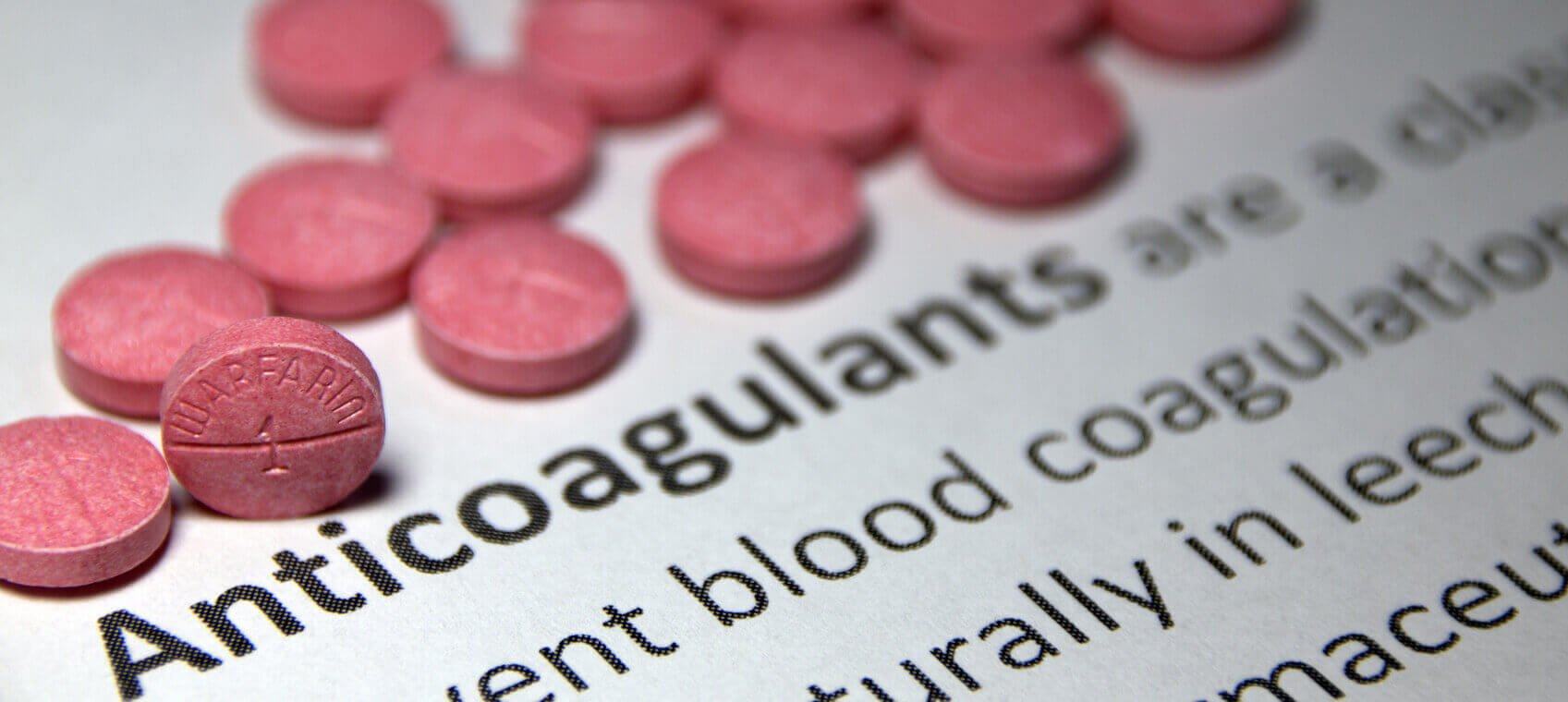
Blood thinners can protect against strokes by helping to prevent blood clots from forming in the chambers of the heart and blood vessels.
Studies have shown that common blood thinners can protect you from a stroke if you have mechanical heart valves, atrial fibrillation, or had an extensive heart attack (scar tissue weakens contraction of the left ventricle, which may allow blood to stagnate and clot). Blood thinners are also prescribed for atrial fibrillation, mechanical heart valves, and prevention of clot formation after cardiac surgeries or events.
Common Blood Thinners and Their Side Effects
- Coumadin (warfarin)
- Heparin (various)
- Xarelto (rivaroxaban)
- Pradaxa (dabigatran)
- Eliquis (apixaban)
Like all medication, blood thinners come with a wide range of side effects, including:
- Excessive bleeding when you overdose
- Weakness, cold sensations, itchy skin, fever, and abdominal discomfort
- Easy bruisability and bleeding gums (when brushing teeth)
- Wounds and cuts that take longer to heal
While anticoagulants help prevent thrombotic and embolic strokes, the risk of a hemorrhagic stroke is higher for those taking blood thinners. Also, you have to watch your supplement intake while on most common blood thinners, as some vitamins and herbs (such as vitamin E, aspirin, or Ginkgo biloba) can thin your blood too much. If you’re on a blood thinner, limit supplemental vitamin E to 400 IU per day, and avoid taking aspirin or Ginkgo biloba.
While I tend to recommend natural treatments over medications, there are a few instances when you simply need the prescription. When it comes to blood thinners, Coumadin is still the best therapy to help prevent blood clots if you have mechanical heart valves, if you’ve suffered an embolic stroke, or if you have recurring atrial fibrillation.
On the "middle of the road" side, aspirin may be used in some cases if you cannot take prescription blood thinners. And if you have “lone” atrial fibrillation (occasional bouts with a healthy heart) or are otherwise at low risk of developing blood clots, I recommend the natural blood thinners.
Natural Blood Thinners
- Fish oil (2–3 grams daily)
- Garlic (1–2 grams daily in capsule form)
- Nattokinase (100 mg daily)
- Vitamin E as mixed tocopherols (100–200 IU daily)
- Lumbrokinase (20 mg daily)


